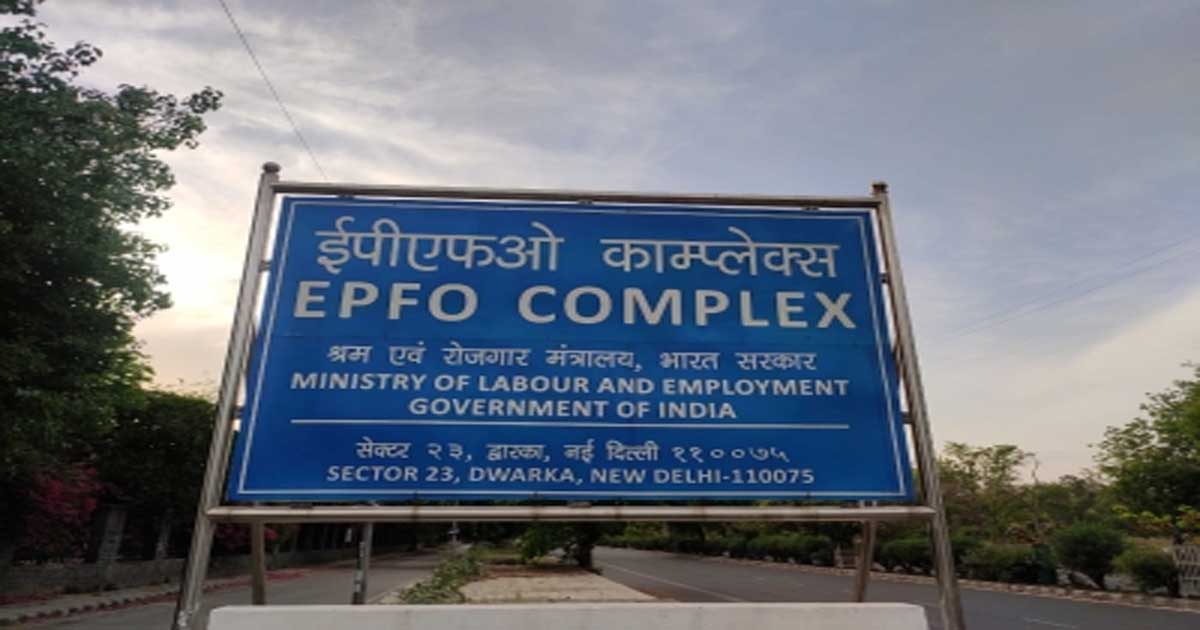Business
Extension of benefit under RoDTEP to tobacco sector will boost exports

The Indian Tobacco Association has said that the extension of benefit under RoDTEP to the tobacco sector is eminently aligned to the objectives of the Foreign Trade Policy and also to have a level playing field to our products in the international market.
Export is a pre-requisite for the growth of any country. The Association said India has got advantage of wide range of soils and climatic conditions to produce different styles of tobaccos which can cater to the needs of different overseas markets.
There are several countries in the world whose economy is based on Tobacco like – Brazil, Zimbabwe, Malawi, Thailand, etc. India is, thus, well positioned to become a major player in the global tobacco market if it can harness the emerging opportunities through price competitiveness. However, steep increases in cost of cultivation, transportation and logistics has adversely impacted the price competitiveness of Indian tobacco.
The Association had said, “we had the opportunity to digitally participate in the Prime Minister’s interactive session. We were pleased to learn that the government is focusing on exports, with the Ministry of Commerce and Industry setting a target of a 30 per cent growth in Indian tobacco exports. In this regard, we also met with the Commerce Minister and the Secretary of the Commerce Ministry, and made our representations and workings through the Tobacco Board. Whereas, tobacco is not included in RoDTEP benefits, despite several appeals.”
The tobacco sector’s exports mainly include value-added products, such as flue-cured Virginia (FCV) tobacco (approximately 72 per cent of the country’s FCV production for export) and tobacco products, which bring the country US$ 900 million in foreign exchange each year. As there is no level playing field in the international market, India’s exports of unprocessed tobacco have fallen sharply.
Indian Unmanufactured exports in 2013-14 was worth Rs 4,850 cr with volume of 236 M Kg compared to Rs 3,780 cr with a substantially low volume of 169 M Kg in 2020-21, clearly indicates India’s fall in global markets. It is loss to entire FCV tobacco stake holder community as well as revenue loss to the Indian Government.
The global competitiveness of the Indian tobacco industry has also been severely affected due to factors like (i) Subsidies provided to tobacco in countries like Zimbabwe, Tanzania, EU, and the USA;(ii) A duty free regime in the EU for imports from least developed countries such as Bangladesh, Nepal, Malawi and so on; (iii) The prevalence of a Tariff Rate Quota in USA whereby the US market is accessible at a concessional import duty rate by countries like Argentina, Brazil, Thailand, etc while non-quota imports from countries like India are taxed at an ad-valorem rate of 350 per cent.
Consequently, the Indian tobacco sector is denied a level-playing field when competing globally with some of the major tobacco growing countries like USA, Argentina, Mozambique and Zimbabwe.
The stated objective of the Foreign Trade Policy in general, include enhancement of India’s export competitiveness by offsetting infrastructural inefficiencies and associated costs involved in export of goods and products, which are produced in India, especially those having high export intensity and employment potential.
Due to reasons stated above, extension of benefit under RoDTEP to the tobacco sector is eminently aligned to the objectives of the Foreign Trade Policy and also to have a level playing field to our products in the international market – Export incentive will boost the Forex and income generation to farmers.
Business
Sensex, Nifty open higher on positive global cues

Mumbai, Oct 15: Indian stock markets opened on a positive note on Wednesday, taking cues from the upbeat global sentiment.
The Sensex climbed 243 points, or 0.30 per cent, to trade at 82,273, while the Nifty rose 79 points, or 0.31 per cent, to start the day at 25,225.
Commenting on the Nifty’s technical outlook, experts said that though the 20-day SMA stepped in yesterday, to limit the extent of the drop, we prefer to give more weightage to the bearish engulfing pattern, thus acknowledging the prevailing bearish bias.
“Meanwhile, we remain equally prepared to switch sides, if Nifty manages to push beyond 25230. However, we will wait for a break beyond 25330 to play directional upsides,” they added..
Buying was seen across most sectors, with heavyweights like Bajaj Finserv, Bajaj Finance, NTPC, L&T, Power Grid, BEL, Bharti Airtel, Trent, and Asian Paints leading the gains. These stocks moved up by as much as 1.2 per cent in early trade.
However, some pressure was seen in select counters such as Tech Mahindra, Axis Bank, Infosys, and Titan Company, which slipped up to 1.2 per cent.
In the broader market, the Nifty MidCap index gained 0.38 per cent, while the Nifty SmallCap index advanced 0.20 per cent — indicating a positive trend beyond the frontline indices.
Among sectoral indices, Nifty IT and Financial Services rose 0.6 per cent each, while PSU Bank and Realty indices also traded higher — reflecting a broadly optimistic market mood.
Experts said that investors are likely to track global market trends, crude oil prices, and institutional flows for further direction.
“In the current environment of heightened volatility and mixed market cues, traders are advised to maintain a cautious “buy-on-dips” approach, particularly when using leverage,” analysts said.
“Booking partial profits during rallies and maintaining tight trailing stop-losses is recommended to manage risk. Fresh long positions should be considered only if the Nifty sustains above the 25,300 mark,” they added.
Business
Explained: EPFO overhauls withdrawal rules to boost transparency, ease access for 30 crore members

New Delhi, Oct 14: The Employees’ Provident Fund Organisation (EPFO) has restructured its partial withdrawal regulations, combining 13 distinct clauses into three main categories: Essential Needs, Housing Needs, and Special Circumstances. This change aims to make it easier to access provident fund savings.
For the nearly 30 crore members who collectively own a corpus of about Rs 30 lakh crore, the reform aims to make the withdrawal process quicker, simpler, and more transparent.
The revised framework, referred to as EPFO 3.0, has standardised withdrawal limits.
Depending on the goal, members can now access up to 100 per cent of their eligible provident fund balance, which includes employer and employee contributions. However, at least 25 per cent of the EPF balance needs to stay in the account in order to maintain a safety net for retirement.
This implies that members can keep the required balance while withdrawing up to 75 per cent of their total corpus.
Additionally, the new regulations standardise the requirements for services. In the past, there were specific requirements for each type of withdrawal, such as five years of service for housing purposes and seven years for marriage-related withdrawals.
All partial withdrawals are now subject to a single 12-month minimum service period, which streamlines the procedure and removes any ambiguity.
Members will no longer need to provide documentation of their withdrawals under the “Special Circumstances” category, which is a significant relaxation. In the past, withdrawals under this heading required proof of emergencies, such as natural disasters or job loss.
The new clause, which permits members to leave without giving a reason, is anticipated to reduce red tape and expedite approvals.
The EPFO has also increased the withdrawal limits for marriage and education-related withdrawals. Instead of the previous cap of three combined withdrawals, members can now make up to 10 withdrawals for education and five for marriage.
Stricter guidelines for final settlements are also introduced by the reforms, though. In contrast to the previous two-month eligibility window, members can now only apply for an early final settlement 12 months after quitting their job and for pension withdrawal 36 months later.
In the event of a job loss, the 25 per cent minimum balance requirement only applies to partial withdrawals; it does not apply to full settlements.
While it is anticipated that the simplified framework will increase efficiency and transparency, workers who are laid off or have experienced extended periods of unemployment may find it difficult to obtain their provident fund savings immediately during a time when they may need it most, due to the revised settlement timelines.
Business
Silver hits record high above $52.50 as safe-haven demand fuel rally

Mumbai, Oct 14: Silver prices soared to an all-time high above $52.50 an ounce on Tuesday, boosted by a historic short squeeze in London and strong demand for safe-haven assets amid global economic uncertainty.
Spot silver rose as much as 0.4 per cent to $52.58 an ounce in London, breaking the previous record set in January 1980 when the billionaire Hunt brothers tried to corner the market.
Gold prices also climbed to a new record, marking eight consecutive weeks of gains, supported by rising geopolitical tensions and expectations of US interest rate cuts.
The rally in silver comes amid concerns over liquidity in the London market, which has triggered a worldwide rush to secure the metal.
Prices in London are trading at a rare premium compared to New York, prompting traders to fly silver bars across the Atlantic — a costly move usually reserved for gold — to benefit from higher prices.
The premium stood at around $1.55 an ounce on Tuesday, down from $3 last week.
Adding to the squeeze, silver lease rates in London — the cost of borrowing the metal — surged above 30 per cent for one-month contracts last Friday, making it expensive for traders to maintain short positions.
The situation worsened as strong demand from India in recent weeks further reduced available supply, following earlier shipments to New York amid fears of US tariffs.
Experts said the latest surge in both gold and silver reflects heightened market uncertainty.
Gold prices have jumped nearly 60 per cent this year, crossing the $4,100 mark for the first time, supported by geopolitical tensions, rate-cut expectations, and strong buying by central banks and investors.
Key US economic data such as inflation and retail sales are due later this week, but analysts warn that if the government shutdown continues, the release of these reports — including jobs data — could be delayed.
-

 Crime3 years ago
Crime3 years agoClass 10 student jumps to death in Jaipur
-

 Maharashtra1 year ago
Maharashtra1 year agoMumbai Local Train Update: Central Railway’s New Timetable Comes Into Effect; Check Full List Of Revised Timings & Stations
-

 Maharashtra1 year ago
Maharashtra1 year agoMumbai To Go Toll-Free Tonight! Maharashtra Govt Announces Complete Toll Waiver For Light Motor Vehicles At All 5 Entry Points Of City
-

 Maharashtra1 year ago
Maharashtra1 year agoFalse photo of Imtiaz Jaleel’s rally, exposing the fooling conspiracy
-

 National News1 year ago
National News1 year agoMinistry of Railways rolls out Special Drive 4.0 with focus on digitisation, cleanliness, inclusiveness and grievance redressal
-

 Maharashtra11 months ago
Maharashtra11 months agoMaharashtra Elections 2024: Mumbai Metro & BEST Services Extended Till Midnight On Voting Day
-

 National News1 year ago
National News1 year agoJ&K: 4 Jawans Killed, 28 Injured After Bus Carrying BSF Personnel For Poll Duty Falls Into Gorge In Budgam; Terrifying Visuals Surface
-

 Crime1 year ago
Crime1 year agoBaba Siddique Murder: Mumbai Police Unable To Get Lawrence Bishnoi Custody Due To Home Ministry Order, Says Report












